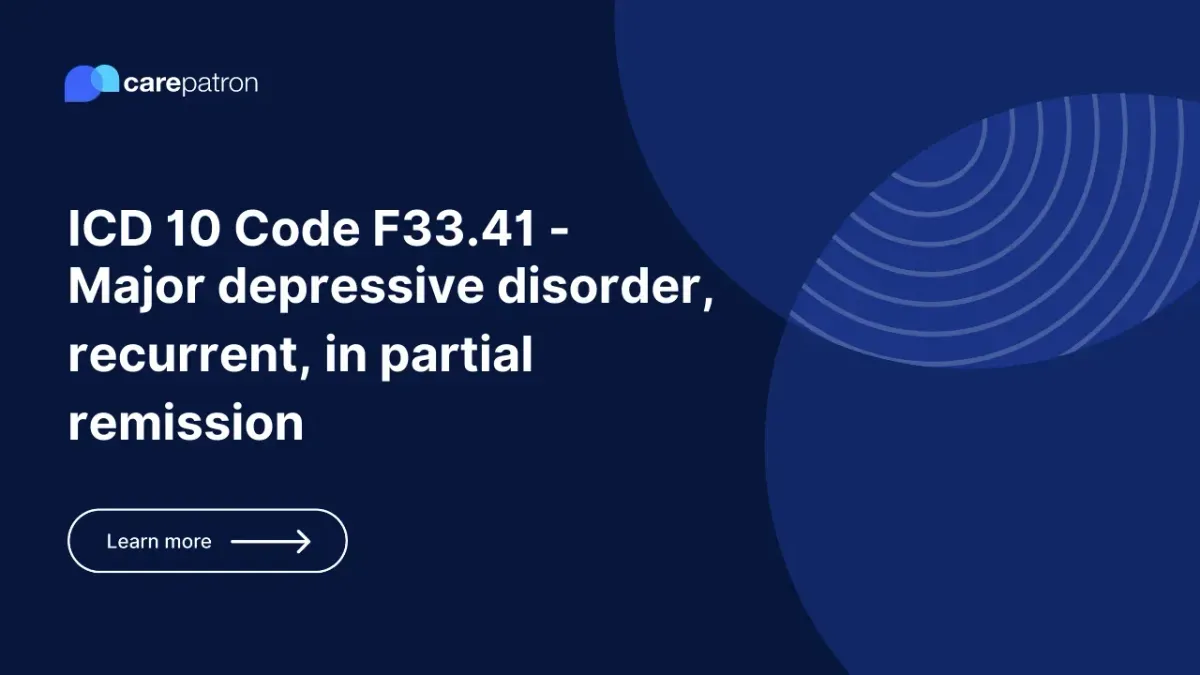
F33.41 – Major Depressive Disorder, Recurrent, in Partial Remission
Get information about ICD-10-CM code F33.41 (Major depressive disorder, recurrent, in partial remission) and learn how to use it.
Use Code
Commonly asked questions
The diagnosis code F33.41 refers to Major depressive disorder, recurrent, in partial remission, indicating that a patient who has had multiple episodes of major depression is currently experiencing some residual symptoms but does not meet the full criteria for a major depressive episode.
Major depressive disorder recurrent in partial remission means the individual shows improvement from a previous depressive episode but still has lingering symptoms that affect functioning, and the remission period is typically less than two months without full symptom resolution.
According to the DSM-5, the severity of depression-mild, moderate, or severe-is determined by the number of symptoms present, the intensity of distress caused, and the degree of impairment in social and occupational functioning; mild depression involves the minimum five symptoms with manageable impairment, moderate includes six to seven symptoms with noticeable functional difficulties, and severe involves eight or more symptoms with significant distress and marked impairment.
EHR and practice management software
Get started for free
*No credit card required
Free
$0/usd
Unlimited clients
Telehealth
1GB of storage
Client portal text
Automated billing and online payments
